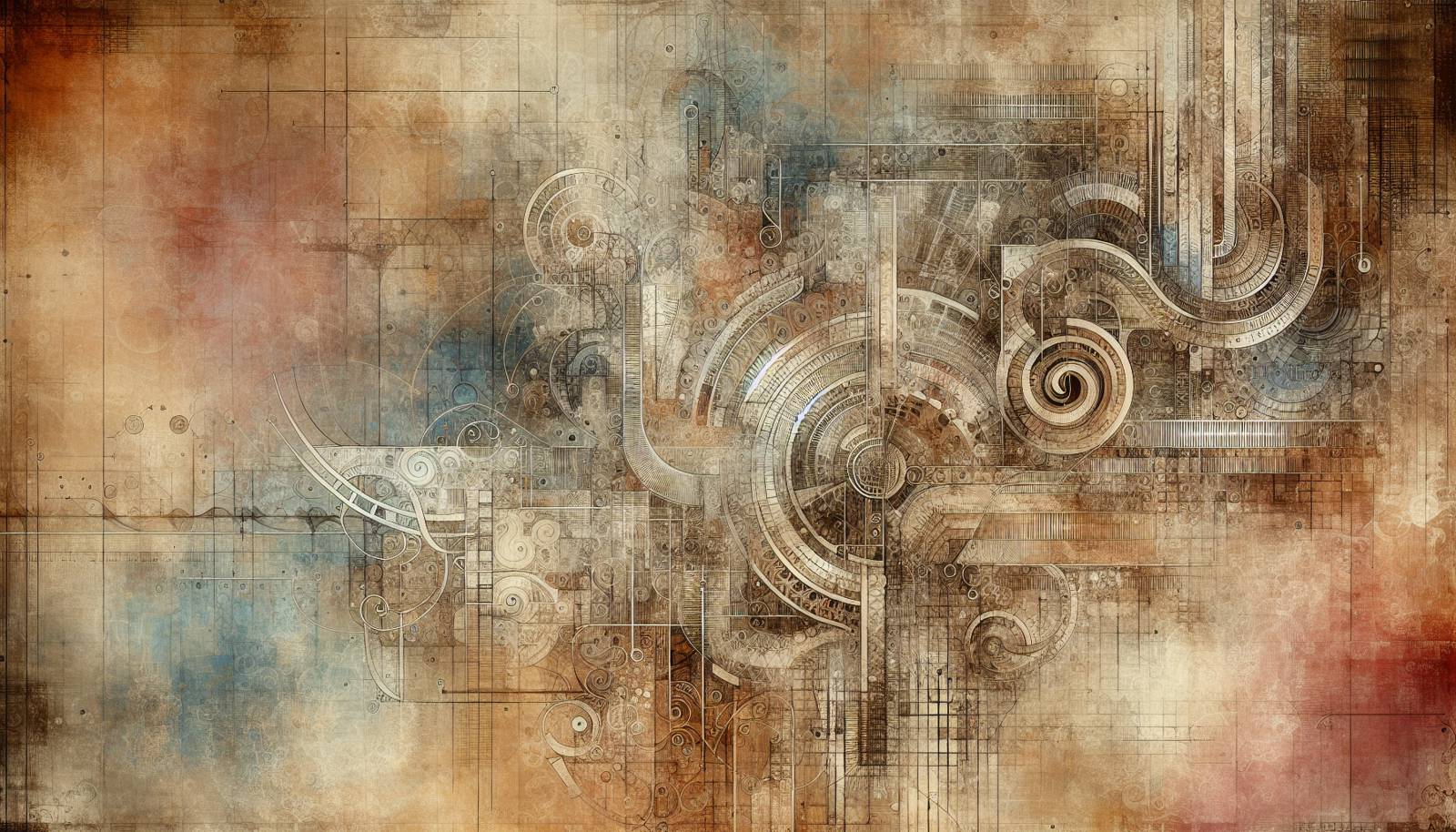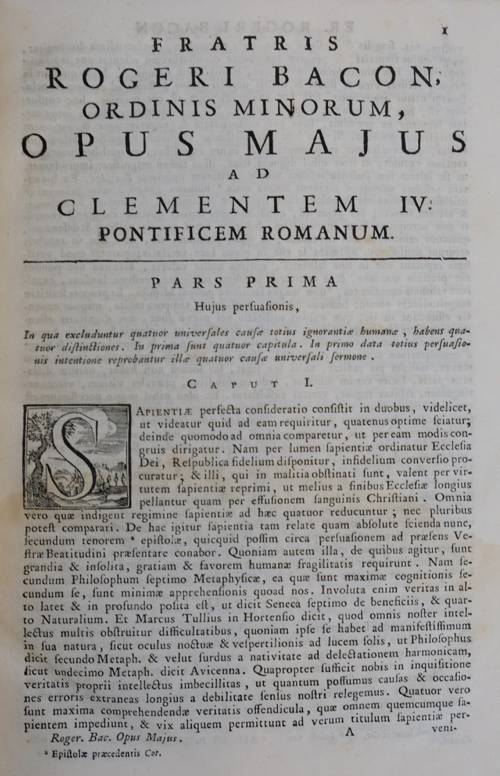
FAQ About Roger Bacon

Who was Roger Bacon?
Roger Bacon was a medieval English philosopher and Franciscan friar who lived from 1214 to 1292. He is renowned for his advocacy of the empirical method of scientific study, emphasizing the use of observation and experimentation in acquiring knowledge. Often credited for his forward-thinking approach, Bacon's work laid important groundwork for the scientific method that later developed during the Renaissance.

What is Roger Bacon known for?
Roger Bacon is best known for his emphasis on empirical methods in the study of science. He promoted the use of observation and experimentation over mere acceptance of traditional teachings. His works, such as the 'Opus Majus,' addressed a range of topics including optics, alchemy, and the calendar reform, highlighting his diverse interests and broad contributions to the development of science.

Why is Roger Bacon considered an important figure in the history of science?
Roger Bacon is considered a significant figure in the history of science due to his advocacy for the empirical method, which involves acquiring knowledge through observation and experimentation. This approach was a departure from the prevalent scholastic methods of his time that heavily relied on classical texts and authority, paving the way for modern scientific inquiry.

What are some of Roger Bacon's notable works?
One of Roger Bacon's most notable works is the 'Opus Majus,' a substantial treatise that covers various subjects like grammar, logic, mathematics, physics, and philosophy. Other important works include the 'Opus Minus' and the 'Opus Tertium,' which were intended to complement the 'Opus Majus' and address matters of metaphysics, moral philosophy, and scientific knowledge.

How did Roger Bacon influence modern scientific methods?
Roger Bacon had a profound influence on modern scientific methods by advocating for the importance of empirical evidence and experimentation. While his ideas were not immediately adopted during his lifetime, they laid a foundation for later thinkers during the Renaissance and beyond, who developed and formalized the scientific method that we recognize today.

What was Roger Bacon's approach to scientific study?
Roger Bacon's approach to scientific study was characterized by a focus on empirical methods, which involved observation, experimentation, and evidence-based conclusions. He believed that this approach was crucial for acquiring true knowledge, rather than relying solely on the widely accepted teachings and texts of his time.

Did Roger Bacon face any opposition or challenges during his lifetime?
Yes, Roger Bacon faced considerable opposition from ecclesiastical authorities who were skeptical of his ideas. His emphasis on direct observation and experimentation was viewed as a challenge to traditional theological teachings and interpretations of classical texts. At times, this led to tensions with the Church and even periods of confinement, limiting his ability to publish his work freely.

What subjects did Roger Bacon study and write about?
Roger Bacon studied and wrote about an array of subjects including mathematics, optics, astronomy, alchemy, and philosophy. He was particularly interested in the use of experimental methods to understand natural phenomena, and his works reflect a wide-ranging intellect that sought to integrate knowledge from different fields.

How did Roger Bacon's thoughts influence his contemporaries and successors?
Though Roger Bacon's ideas were not widely embraced during his lifetime, they influenced subsequent generations of scholars who recognized the value of empirical methodology. Figures of the Renaissance and the Scientific Revolution, such as Galileo and Francis Bacon, were part of a broader movement that adopted principles echoed in Bacon's ideas, promoting the empirical methods he advocated.

What educational background did Roger Bacon have?
Roger Bacon was educated at the University of Oxford and furthered his studies at the University of Paris. These institutions were prominent centers for Christian theological and philosophical thought during the Middle Ages. His academic background provided him with a solid foundation in the scholastic tradition, which he later sought to reform through his embrace of empirical and experimental methods.

What was the 'Opus Majus' and why is it significant?
The 'Opus Majus' is Roger Bacon's most comprehensive and ambitious work. Written at the request of Pope Clement IV, it is a vast encyclopedia that addresses what Bacon saw as the four great 'hindrances' to knowledge: reliance on bad authority, reliance on habit, popular prejudice, and the concealment of one's own ignorance with unacceptable rhetoric. It is significant because it articulates Bacon's philosophical and scientific views, emphasizing his commitment to empirical research.

How did Roger Bacon contribute to the field of optics?
Roger Bacon contributed to the field of optics by studying and writing extensively about the behavior of light and the mechanics of vision. He built on the work of earlier Arab scholars and laid groundwork in understanding phenomena such as refraction, and the magnification properties of lenses. These studies would later influence the design and creation of eyeglasses and other optical devices.

Did Roger Bacon invent anything?
Roger Bacon himself did not invent any tools or devices, but his work contributed to the intellectual groundwork that made later technological innovations possible. He speculated about inventions such as cars, flying machines, and mechanically propelled ships, ideas that were far ahead of his time and would eventually inspire future inventors and technologists.

What were some of the criticisms of Roger Bacon's work?
Critics of Roger Bacon’s work often found his emphasis on empirical methods controversial, as it challenged the established norms of learned authorities, particularly within the Church. Some felt his ideas were overly speculative or difficult to implement given the technological and societal constraints of the time. Additionally, his cryptic and complex writing style was sometimes viewed as inaccessible.

How did Roger Bacon view alchemy?
Roger Bacon viewed alchemy as both a spiritual and scientific pursuit. He believed in the potential of alchemy to transform not only base metals into noble ones but also to purify and extend human life. His work included discussions on the processes and chemical reactions involved in alchemy, despite its esoteric reputation at the time.

What is Roger Bacon's legacy?
Roger Bacon's legacy lies in his early and influential advocacy for the empirical and experimental study of the natural world. His insistence on the importance of observation and direct experience in the pursuit of knowledge presaged modern scientific methods. Despite facing opposition during his lifetime, his ideas helped spark a transformation in how inquiry was conducted, influencing key figures during the Renaissance and shaping the future of science.

What is a common misconception about Roger Bacon?
A common misconception about Roger Bacon is that he was solely an alchemist or a mystical thinker. While he did engage with alchemical and mystical ideas, his primary contribution was his systematic approach to the scientific study of the natural world through observation and experimentation. This focus has earned him a place as one of the pioneers of scientific thought.

How did Roger Bacon's religious beliefs influence his work?
Roger Bacon's religious beliefs greatly influenced his work, as he believed that understanding the natural world was a means of glorifying God. As a Franciscan friar, he saw empirical study as complementary to theological understanding, arguing that nature should be studied not purely for its own sake but as a testament to divine creation.

What impact did Roger Bacon have on education in his time?
Roger Bacon advocated for educational reform, encouraging a curriculum that included empirical sciences in addition to the traditional disciplines of theology and philosophy. His ideas promoted a broader understanding of the world and paved the way for a more comprehensive educational approach that would eventually be realized many centuries later. His influence, however, was limited by the constraints of the medieval educational system.
